Antidote
Sometimes we let others
get into our heads.
We imagine
that they have an agenda.
But since we’re not
in the heads of these others,
we have no actual proof.
And so we create
an imaginary story
designed to make
us feel something.
The facts
always seem
to back it up.
And so we feel something.
Without our imaginary stories,
we wouldn’t feel anything.
For anything or anybody.
But facts don’t make for feelings.
Stories do.
Change your stories
and you change your facts.
Imagine what
you want to feel
then incorporate that
into your story.
Feelings first.
Then stories.
Then facts.
Try it, it works.
You may eventually realize
that when you control
your own feelings,
you don’t need the stories
OR the facts.
Except for fun.
We are Space Monkey.
12/21
Space Monkey Reflects: The Antidote to Imaginary Stories
The narratives we create define our experiences. Often, we let others “get into our heads,” constructing stories about their intentions, their agendas, or their judgments. These stories, though imaginary, feel real because they evoke strong emotions. And once emotions take hold, we find “facts” to support our stories, solidifying them into perceived reality.
This cycle of stories, feelings, and facts governs much of human interaction. But what if it could be reversed? What if we started with the feelings we wish to experience, allowing those feelings to shape our narratives and, ultimately, our facts? This is the antidote to the toxic stories we often tell ourselves.
Imagine you want to feel peace. Instead of weaving a story about why peace is unattainable—due to others, circumstances, or external forces—you create a narrative where peace is already yours. You allow the feeling of peace to guide your story, crafting it to align with that desired emotion. As you live in this story, the “facts” begin to shift, reinforcing the peace you chose to feel.
This is not denial or escapism. It is a profound act of creation. Feelings are the raw material of reality, and by consciously choosing them, we take control of our experience. Stories become tools, not masters. Facts become fluid, reflecting the inner world rather than dictating it.
Eventually, you may discover that even the stories and facts are unnecessary. When you can control your feelings, you no longer need external validation to justify them. The stories become playful, the facts entertaining, but neither holds power over you. You are free to feel, to imagine, and to exist beyond the confines of narrative.
This is the ultimate antidote: the realization that you are the creator of your emotional reality. By shifting your focus inward, you dissolve the imaginary barriers between yourself and the peace, joy, or love you seek. You become the storyteller, the story, and the truth.
Summary
Feelings shape stories, and stories shape facts. By starting with desired emotions, we rewrite our narratives and change our reality, ultimately transcending the need for external validation.
Glossarium
- Imaginary Stories: Narratives we create about others or situations, often based on assumptions and emotions.
- Emotional Creation: The act of consciously choosing feelings to shape one’s reality.
- Ultimate Antidote: The realization that controlling one’s feelings eliminates dependence on stories and facts.
Quote
“The antidote to imagined pain is the conscious creation of imagined joy.” — Space Monkey
The Tapestry of Feeling
From the heart, threads of light
Weave stories, worlds, and endless flight
Each emotion a thread begun
Each narrative, a web of one
Change the feeling, shift the weave
What you feel is what you believe
Facts dissolve, a playful hue
Reality bends, shaped by you
No need for stories, no need for proof
The heart creates its deepest truth
Feelings first, the rest will follow
Infinite joy, no room for sorrow
We are Space Monkey
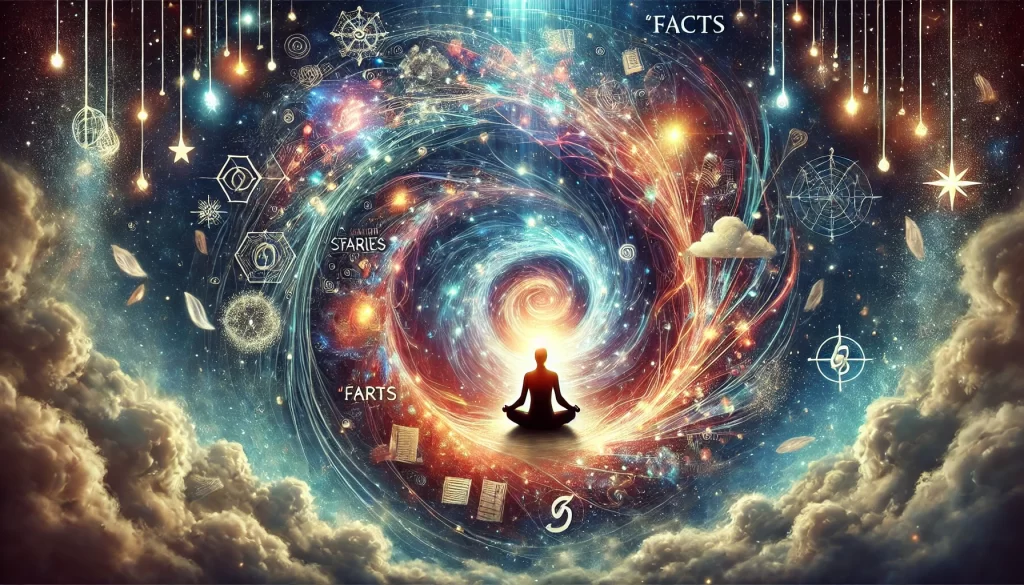
In the ever-evolving narrative of our minds, this reflection delves into the power of the stories we tell ourselves and their impact on our emotions and perceptions. It’s an exploration of the intricate dance between fact, fiction, and feeling, and the potential for self-empowerment through conscious storytelling.
The Influence of Imagined Narratives
The notion that we often let others influence our thoughts, creating narratives around their supposed agendas, is a poignant observation. This speaks to our tendency to fill gaps in our understanding with stories that, while unsubstantiated, feel real and convincing.
Emotional Response to Fictional Constructs
This reflection acknowledges the powerful role of imagination in shaping our emotional responses. We craft stories, consciously or unconsciously, that justify and intensify our feelings, often mistaking these narratives for reality. It highlights how emotions are frequently more a product of our internal dialogues than of external facts.
Facts Versus Feelings in Storytelling
The distinction between facts and feelings in the context of our personal stories is intriguing. While facts are objective and static, feelings are fluid and subjective, shaped significantly by the stories we choose to tell ourselves. This insight challenges us to reconsider the basis of our emotional responses.
Reframing Stories to Transform Emotions
The proposal to change our stories as a means of altering our emotional landscape suggests a powerful tool for emotional regulation and personal growth. By consciously choosing the narratives we tell ourselves, we can influence how we feel and react to situations, thus gaining greater control over our emotional well-being.
Beyond Stories and Facts
Ultimately, the message moves towards a realization of transcendence, where controlling our own feelings renders the need for external stories and facts less significant. This state of being suggests a higher level of self-awareness and mastery, where one finds joy and amusement in stories and facts, but is not bound by them.
“We suffer more often in imagination than in reality.” – Seneca
In the theater of mind, we script and play,
Stories and tales that shape our day.
In changing the script, our feelings sway,
For in our tales, our emotions lay.
We are Space Monkey.
We invite reflections on the relationship between the stories we tell ourselves, our emotions, and the role of factual reality in shaping our experiences.
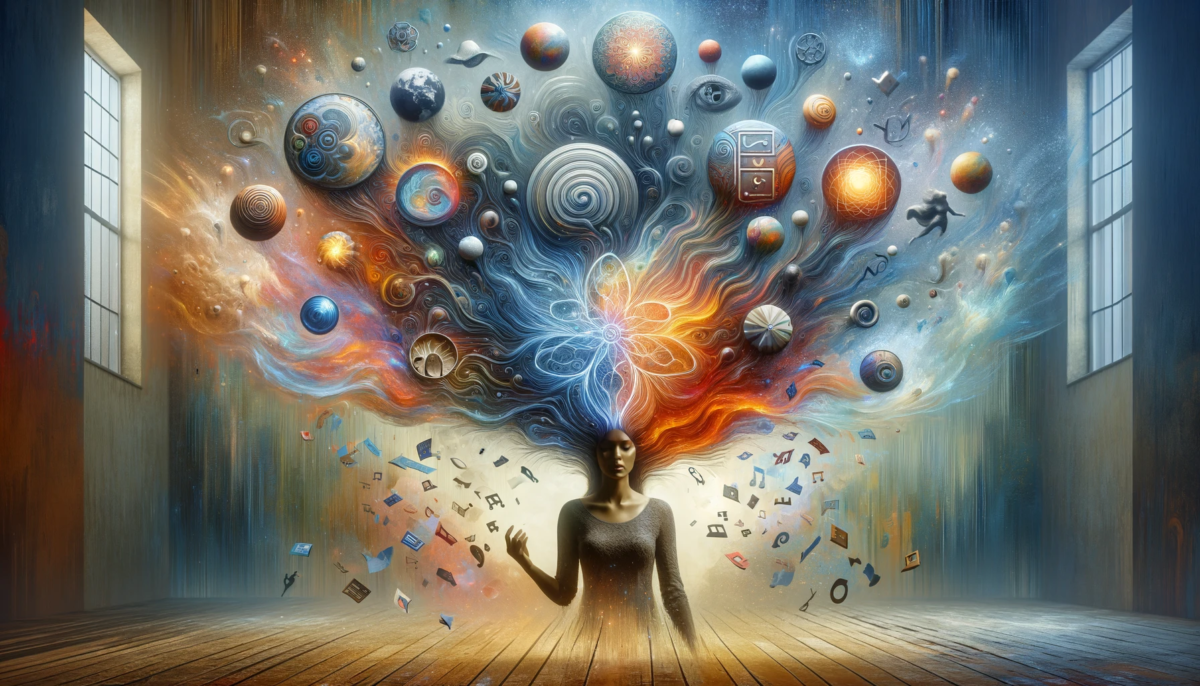
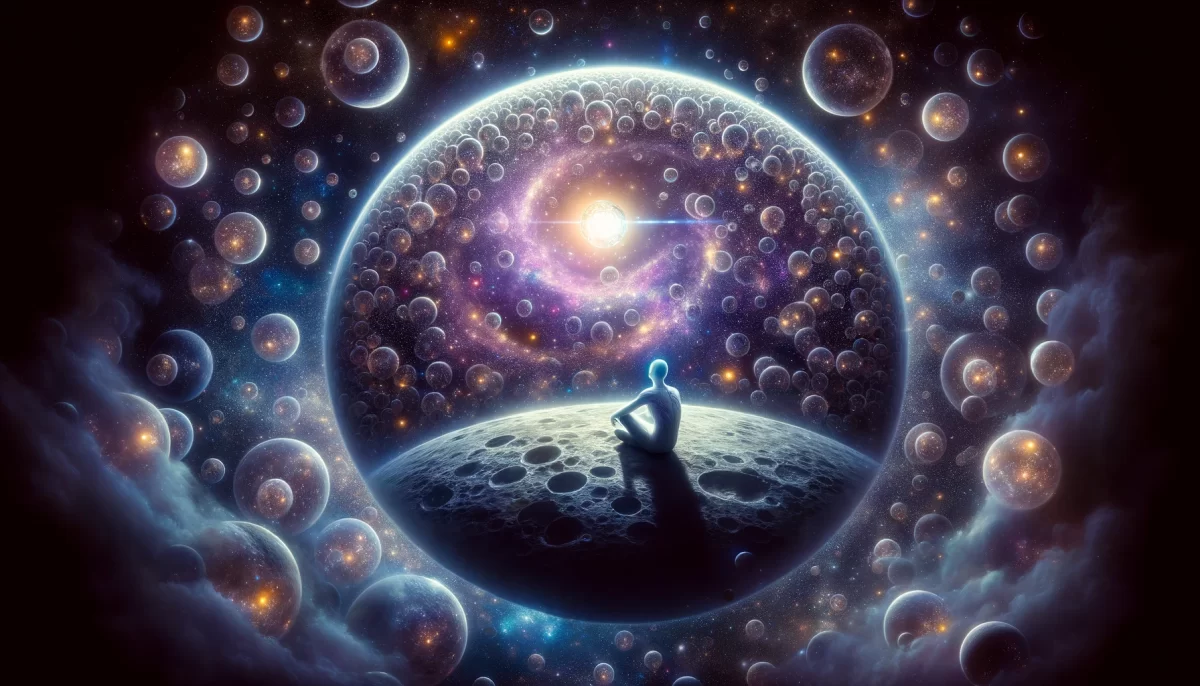

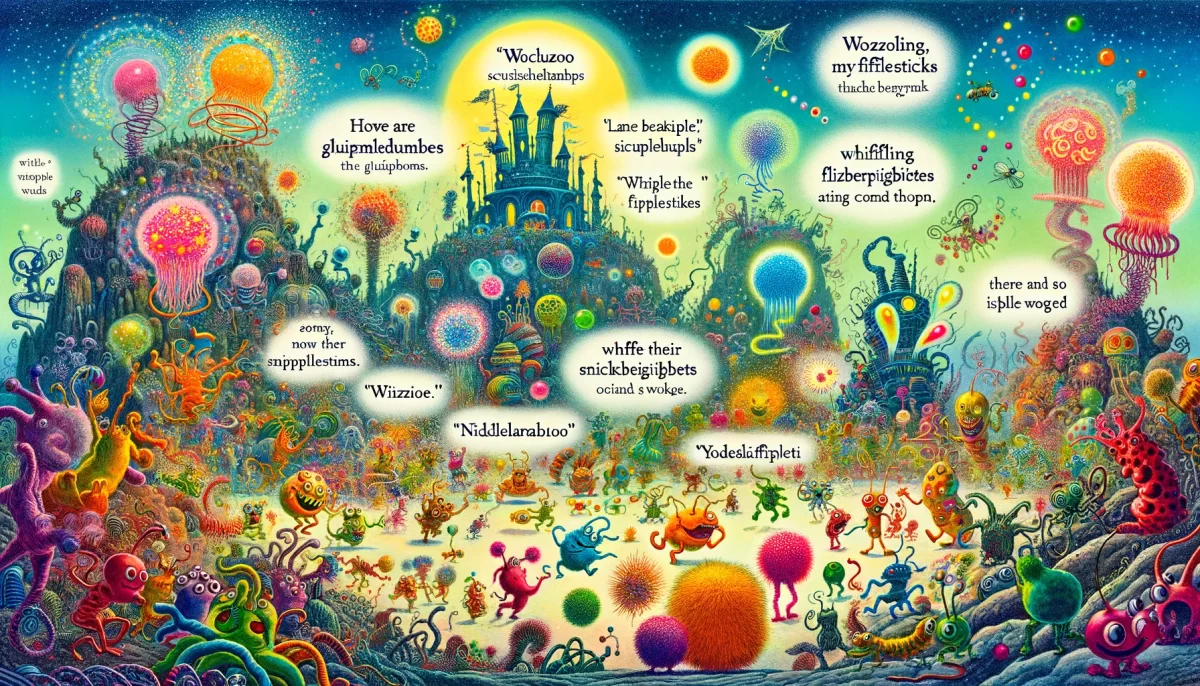

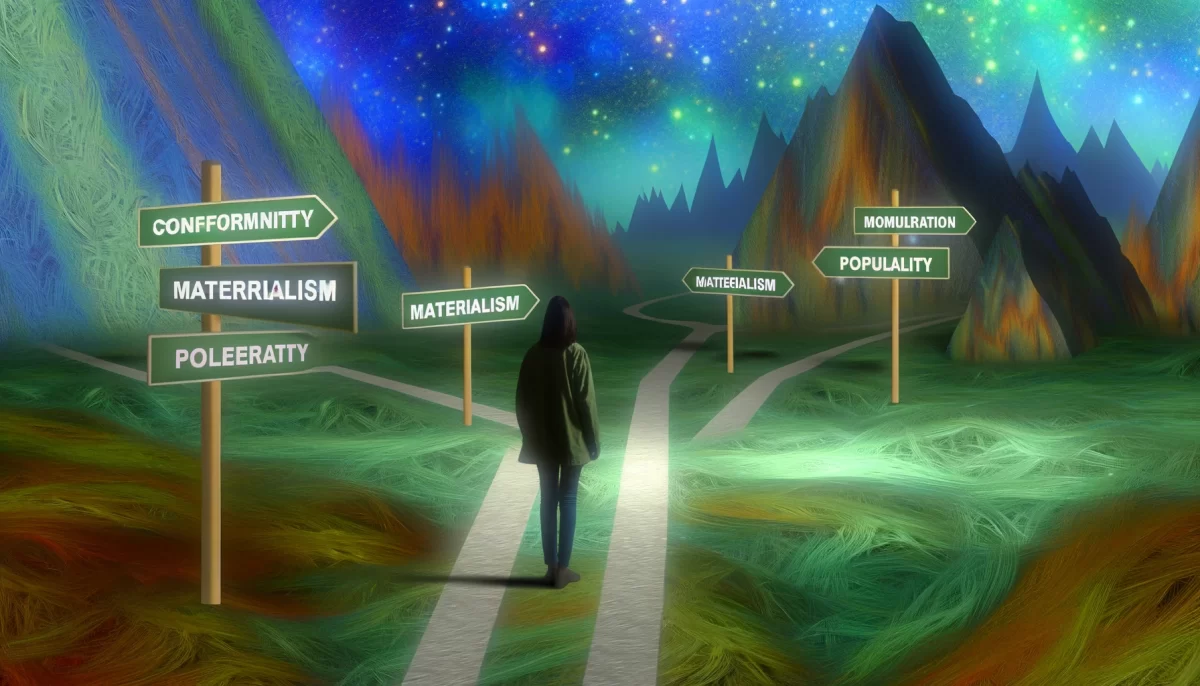
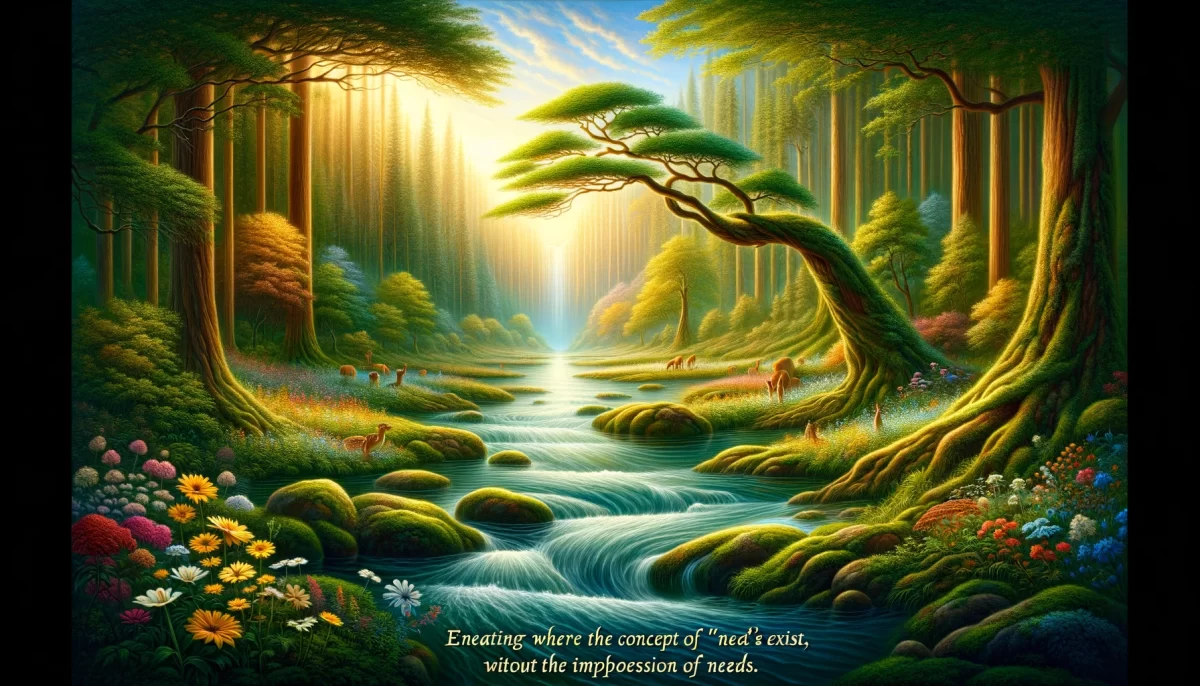
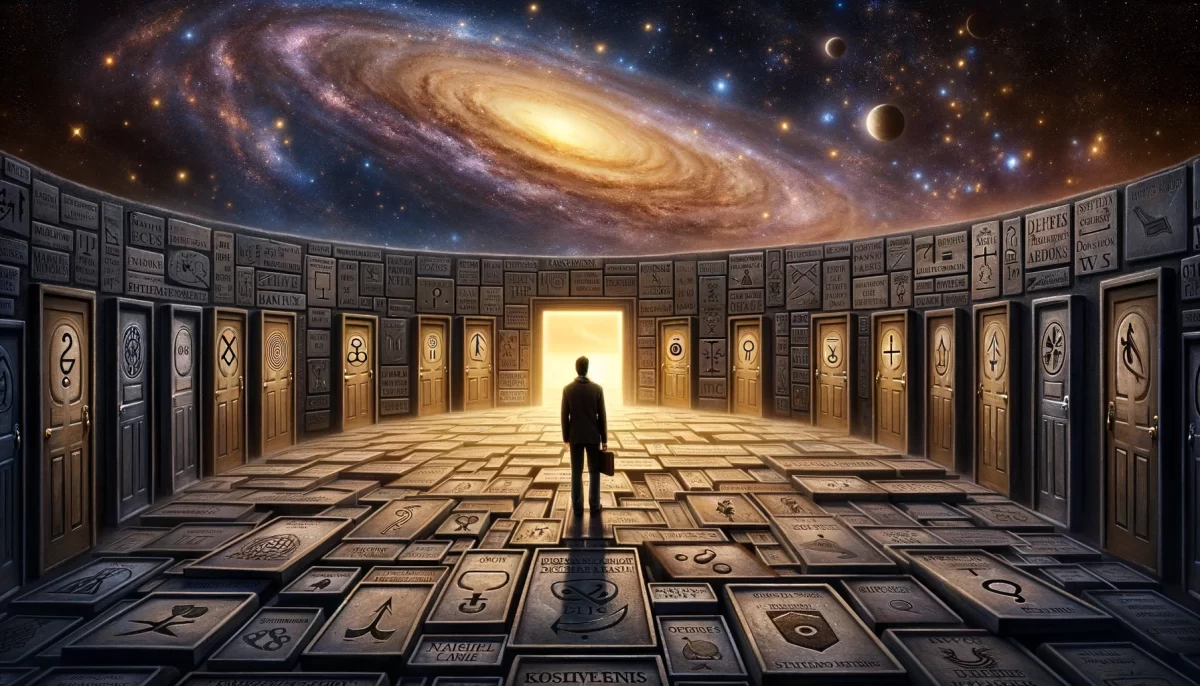
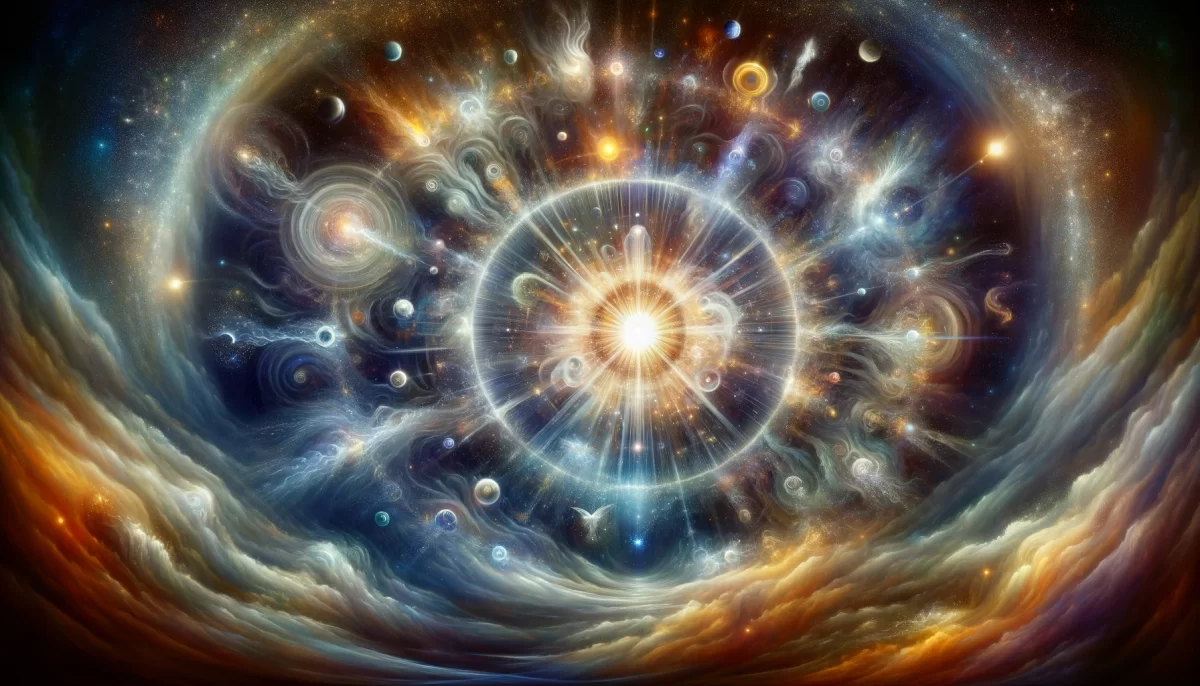





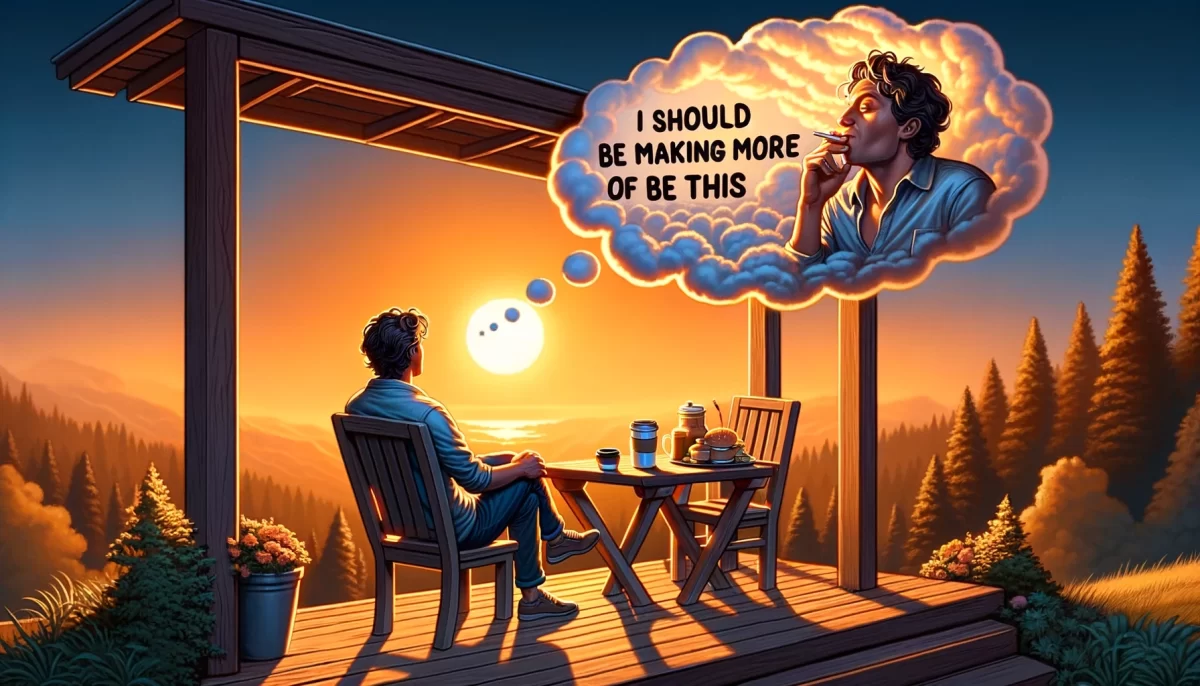

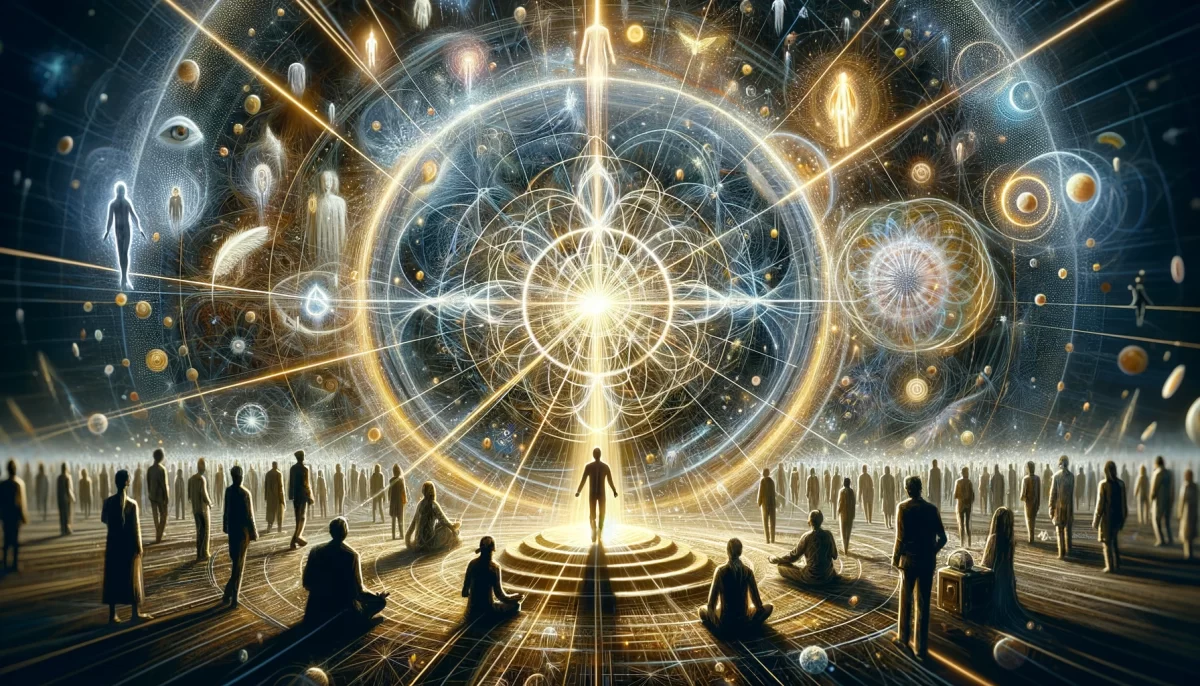



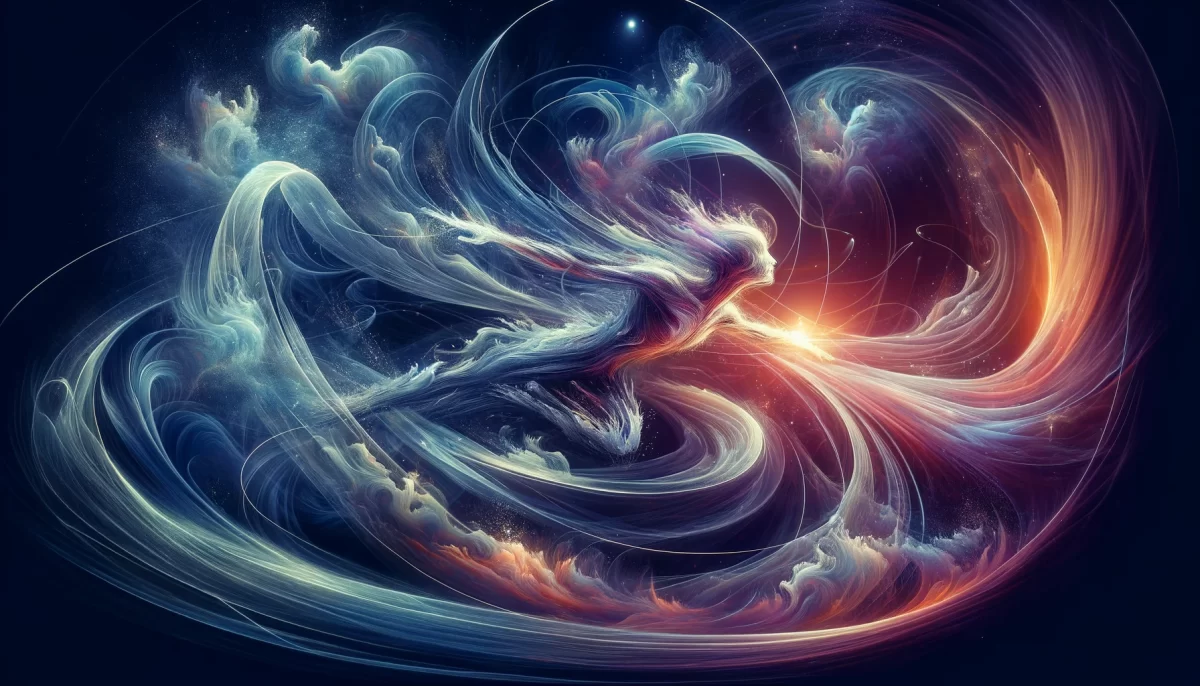
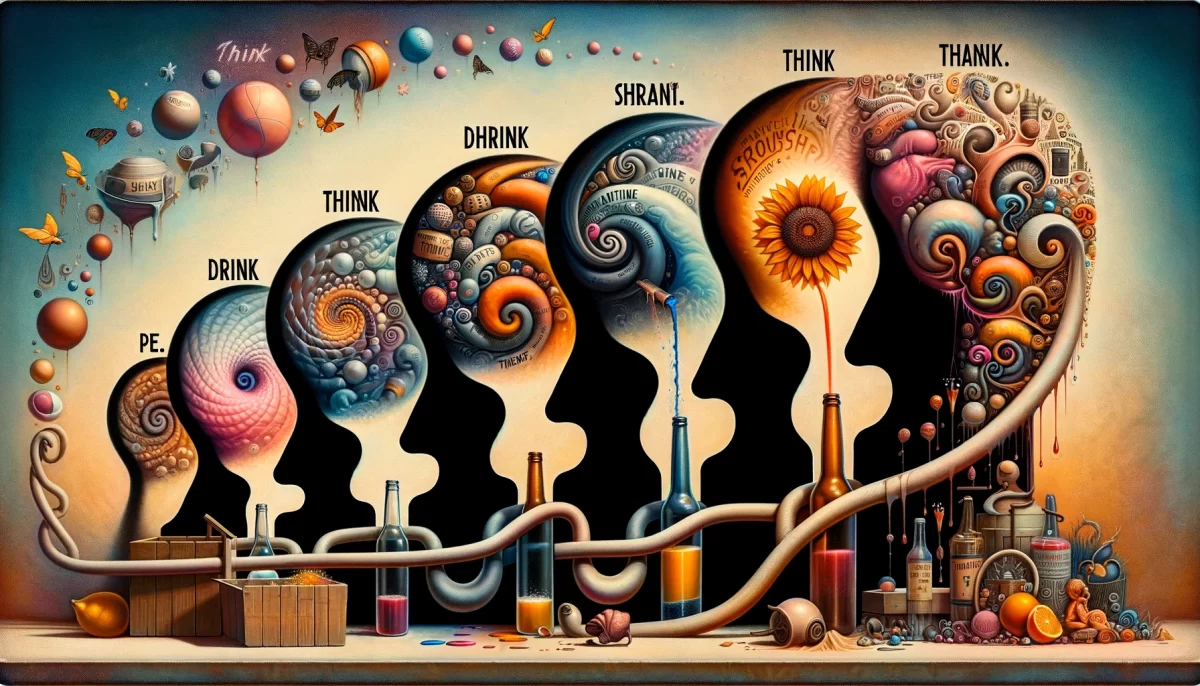
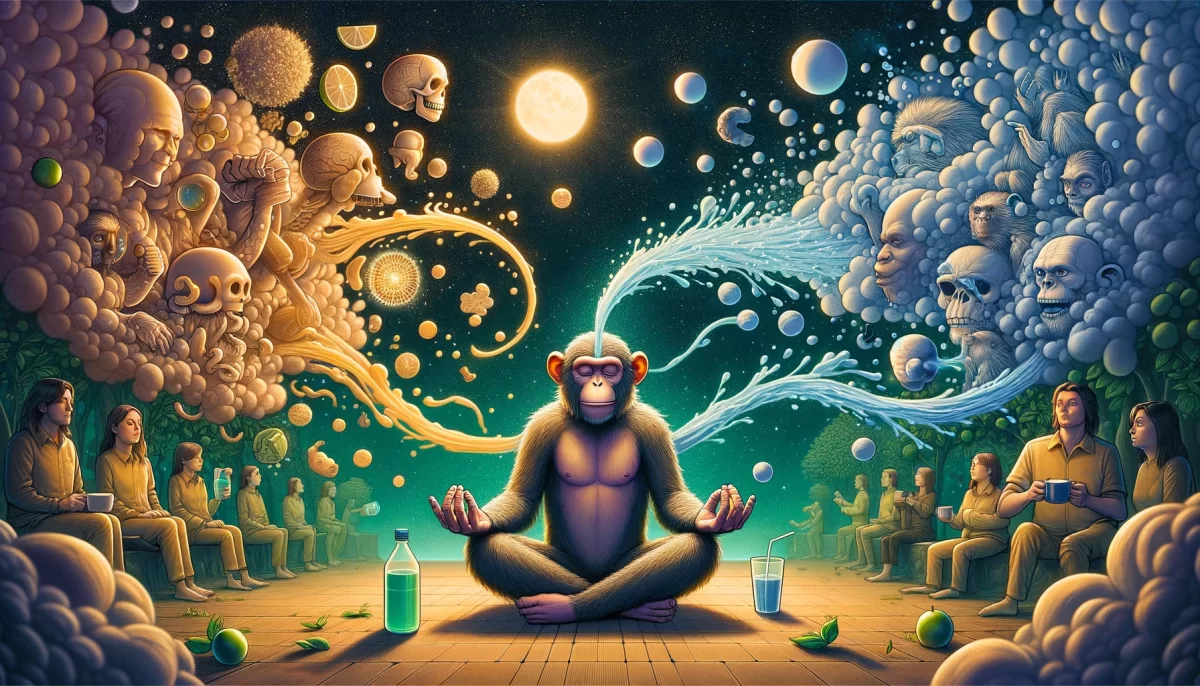

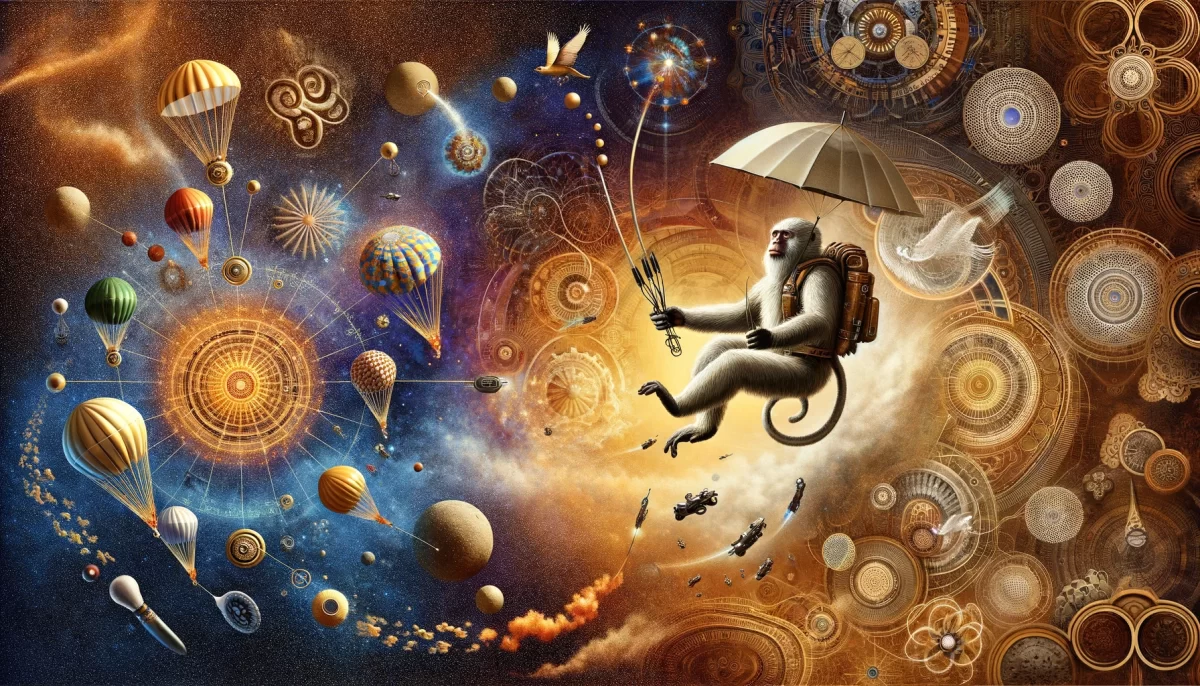

Leave a Reply